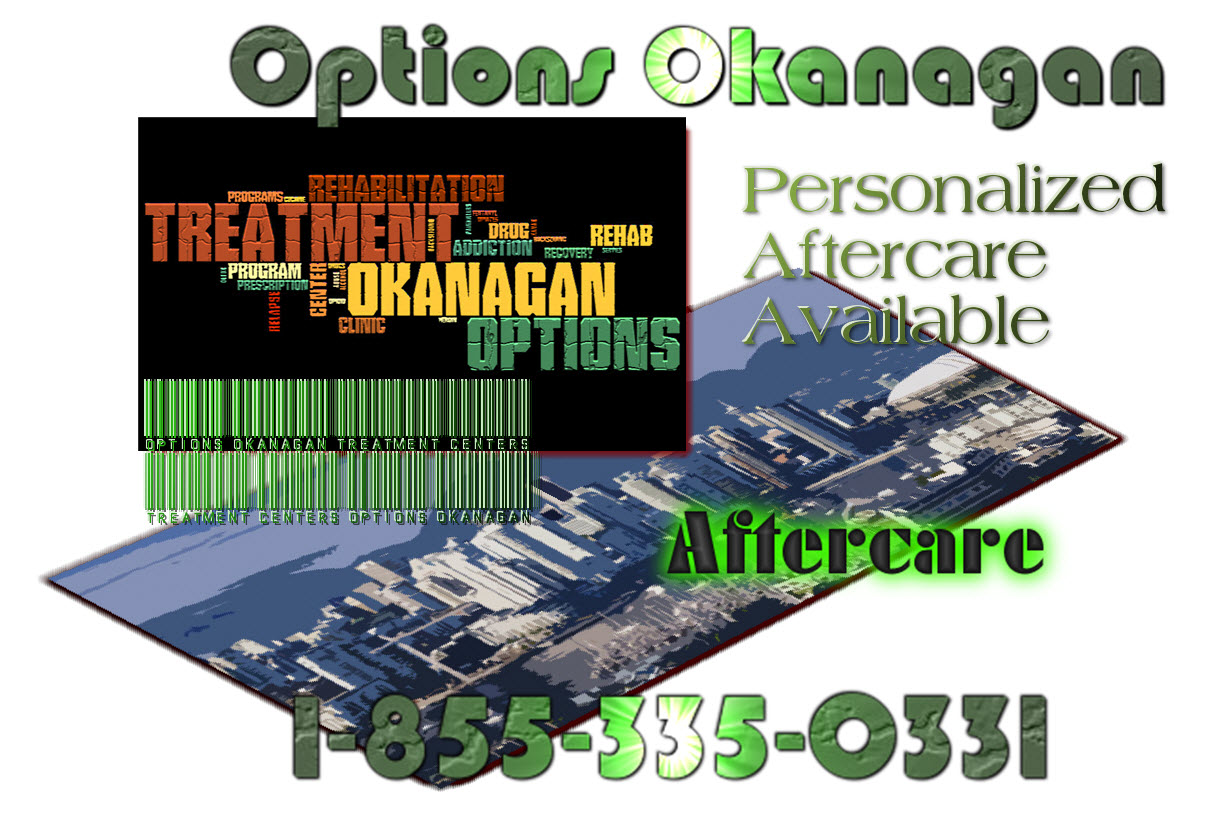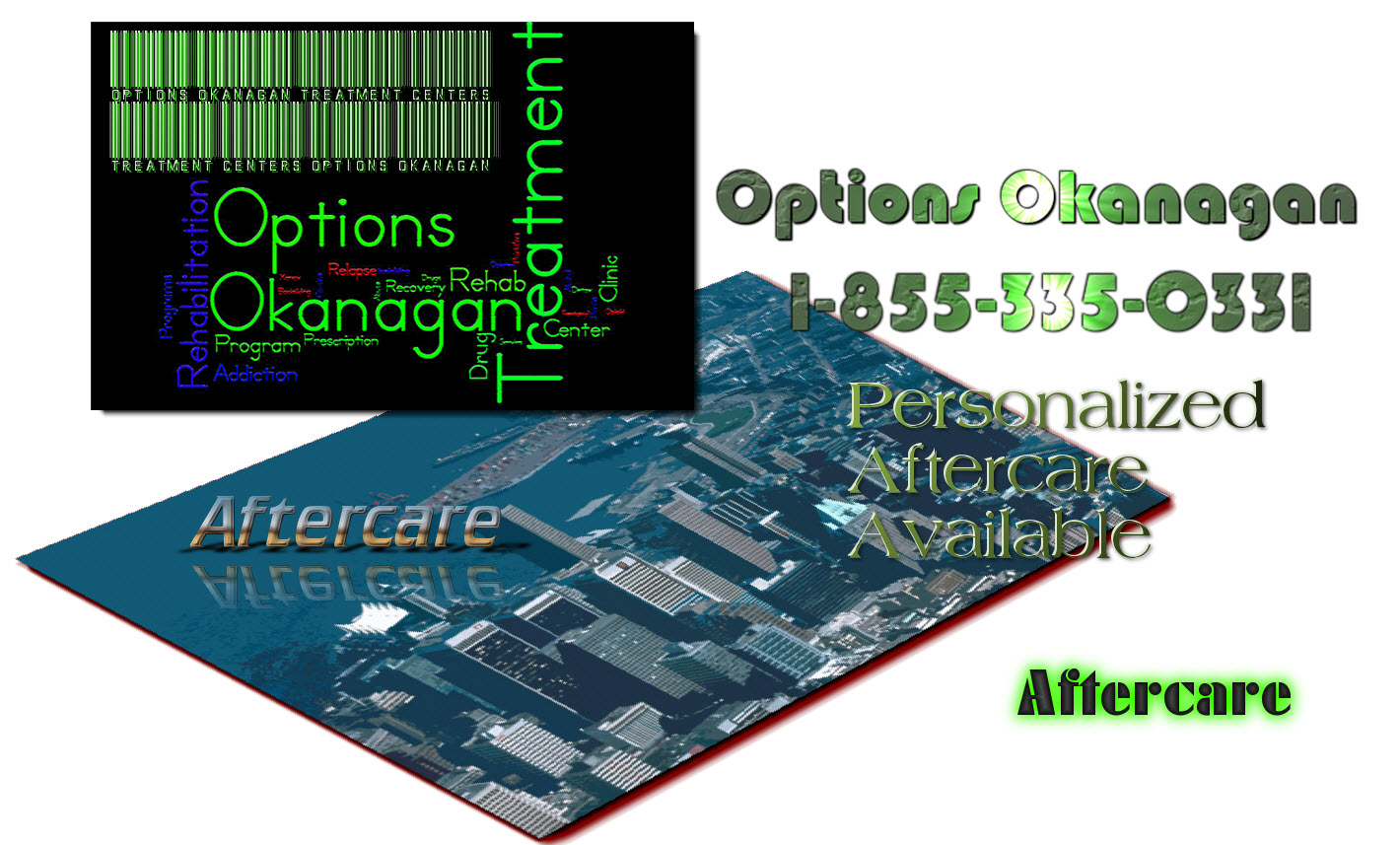Aftercare: How to avoid relapse after opiate, drug or alcohol rehab treatment finishes in Vancouver, Victoria or Kelowna, British Columbia – Options Okanagan Treatment Centers in Kelowna, British Columbia treating opiate and alcohol addiction and recovery.
In many ways, the most difficult part of getting a long-term recovery process established and maintained occurs after the intensive, initial part of the treatment is finished.
In order to avoid relapse, a majority of individuals need the warm embraces of their loved ones – whether that happens to be close, biological family members or new chosen “family” made up of other recovering individuals that they feel they can turn to anytime they believe they are in danger of a relapse.
Five factors were identified by one study that contribute most often to relapse:
1. Low motivation for change
2. Negative thinking
3. Failing to follow through with recommendations from counselors and doctors
4. Interpersonal conflicts with family members o others
5. Being unable to manage negative emotional states or stress
Those factors are similar to the variables affecting relapse when having to deal with diabetes and other kinds of chronic disorders:
1. Co-occurring mental health disorder
2. Inadequate support from family members
3. Poverty
3. Failing to stick with behavior change, medications or diet
Addicted individuals, among other things, have to learn how to avoid coming into contact with triggers that might set their brains in motion for its demands for alcohol or drugs. At times when the triggers are unavoidable, individuals need to develop the proper skills that will help to prevent their cravings from completely taking over. One of the core elements of their treatment program needs to be to learn these skills; maintaining them needs to be part of their long-term recovery plan or aftercare program.
A well known aftercare counselor, who helps fellow NA and AA members, says that aftercare is continuing care that an individual needs to stay involved with in order to survive. He adds that if a person simply leaves their 30 day treatment and doesn’t attend meetings or participate in a group and have a sponsor and commitment, then within a very short period of time they will go back. They won’t be able to resist the temptations of Alcohol or Drugs.
One leading counselor, who is in charge of a confidential addiction assistance program to help employees at a Canadian Major College of Medicine states that expert counselors can’t strongly emphasize the role that the aftercare contract plays enough as well as the aftercare program. He says it is the key to being successful.
Another counselor, who heads a Vancouver recovery center, where participants are able to gather for job training, mutual aid, friendships and other forms of tangible assistance to help individuals in recovery get back on their feet, stay committed to their recovery plans and begin a new life. Peer support is a critical aspect of the recovery center. However solution-oriented efforts are the focus of the organization and it isn’t limited to specific issues that come out of addition-focused dialogue from 12-step programs. Aftercare focuses on the solution instead of the problem.
Many individuals believe they are trying to replace AA. However, they aren’t trying to replace 12-step. Individuals who are in long-term recovery process are in a completely different stage and don’t have the same needs. The counselors have developed recovery commitment plans for their clients – the goal is getting them to the place where they are preparing themselves for a lifetime of recovery.
Services like skill-training and educational services, mentoring and peer coaching, and recovery center play a key role in assisting an addicted individual with rebuilding their lives, avoiding relapse and sustaining long-term recovery. The Recovery Community Services Program (RSCP), a small federal program, funds faith-based and community-based programs that offer these services, which links people with education, jobs and/or housing, as well as hosting drug-free or alcohol-free social activities.
Options Okanagan Opiate and Alcohol Treatment Centers in Kelowna, Salmon Arm and Vancouver, British Columbia – Men and Women are recovering and healing from Alcohol and Drug Abuse at our treatment center here in the Okanagan right now.
Our unique and distinctive Opiate Drug and Alcohol treatment program allows men and women to come in from Calgary as well as Edmonton as we offer airport pickup.
Numerous clients come to us from Vancouver, Calgary and Edmonton and other locations in Alberta and even other provinces for Opiate addiction treatment, heroin drug treatment, many other drug and alcohol addictions for rehabilitation because of the uniqueness of our treatment center.
Our Treatment Location:
Options Okanagan Opiate Treatment Center
551 Sherrydale Crescent, Kelowna, British Columbia, V1V 2E6
Toll Free Phone Number : 1-855-335-0331








